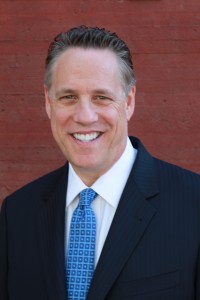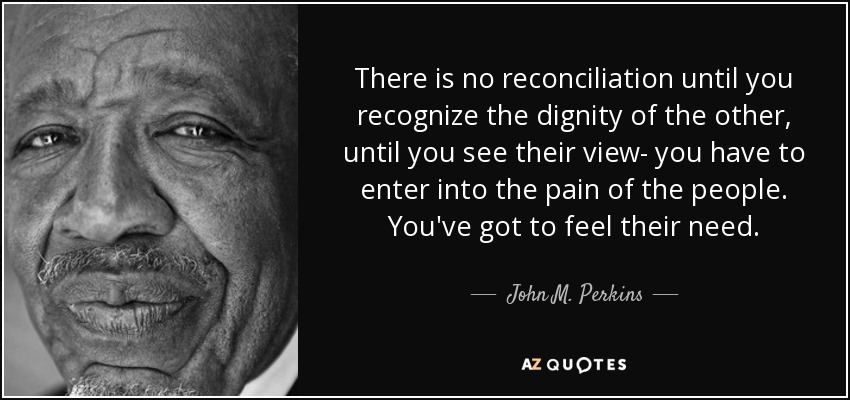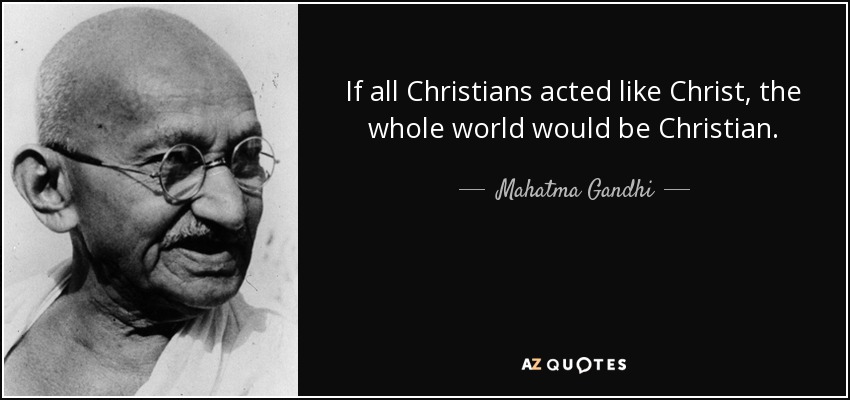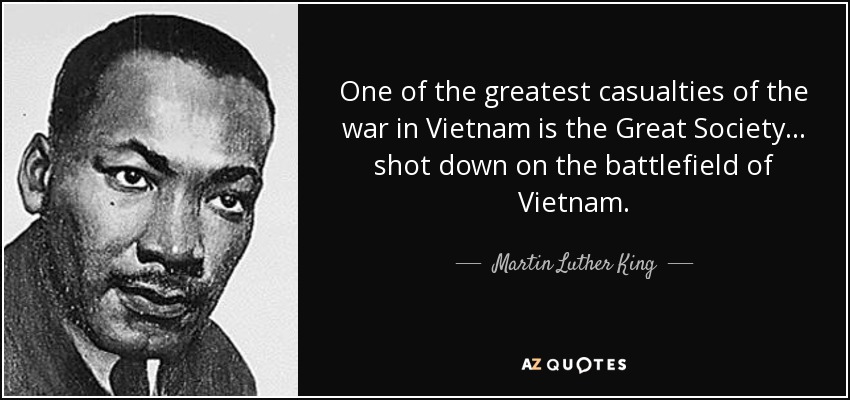Click here to return to Blog Post Intro
At NASA—and at many large companies and organizations—we’re working on “Inclusive Leadership” as a key to our future success. One consultant we’ve used is Chuck Shelton of GreatHeart Consulting.

Prior to taking one of his learning labs, I read his book Leadership 101 for White Men. In that book, he referenced The Heart of Racial Justice, which I picked up and read in 2014. The notes below capture much of what I gleaned from the book:
John M. Perkins, a self-proclaimed first-generation of pioneer evangelicals in the early 1960s, wrote in the book’s foreward, “Only the Holy Spirit can heal the wounds of racism and empower us to do justice.”
This book chronicles the journey of InterVarsity Christian Fellowship, an inter-denominational, evangelical Christian campus ministry founded in 1941 that works with students and faculty on U.S. college and university campuses. In the late-1970s, InterVarsity’s Board of Directors made reconciliation a priority. In large measure, this book reflects 25 years of struggle and success by Intervarsity.

The book starts with a couple of key definitions:
- Ethnocentrism: The belief that my ethnic group is central, superior, and destined to dominate. Anyone can be ethnocentric.
- Racism (as defined by Karen McKinney of Bethel College in Minnesota): The belief in the superiority of one race and the inferiority of other races, leading to the collective misuse of power that results in diminished life opportunities for some racial groups.
Is There Still a Race Problem?
Toward the end of Billy Graham’s public ministry, he said, “Racial and ethnic hostility is the foremost social problem facing our world today. From the systematic horror of ‘ethnic cleansing’ in Bosnia to the random violence ravaging our inner cities, our world seems caught up in a tidal wave of racial and ethnic tension. This hostility threatens the very foundations of modern society.”
Most whites really believe the playing field has been leveled and equal opportunity has been made available to everybody. As a result, they think minority people should buck up, pull themselves up by their bootstraps, and quit complaining and whining and “playing the race card” every time they want something.
Mahatma Gandhi, the great Asian Indian leader, rejected Christian faith for two reasons:
- He could not accept the Christian meaning of the death of Jesus.
- He experienced the powerelessness of Christian faith to bring unity and justice in South Africa and then in his dealings with the British in India
When asked how Christians could better witness to Jesus, he replied, “Live like Jesus did, and the world will listen.”
A New Model
Two primary models have been used by people of faith in America to overcome the racial divisions and inequities of our society:
- Relational or Interpersonal Model: Make a friend with someone from another race or ethnicity and you will bring about social change through friendship, one life at a time. Developing a personal friendship with someone of another ethnicity is still probably the most important first step we can take, but it’s not an adequate change model to address the immense challenges we face.
- Institutional Change Model: Method seeks to create justice and equity by redistributing power among groups. Our goal is to be transformed toward God’s multi-ethnic kingdom of worship and shalom, which is the Hebrew word for God’s peace with justice. The institutional change model is inadequate to accomplish that because it does not address the transformation of the human heart.
Because we are convinced that racism and injustice are spiritual problems above all, we offer the healing model of ethnic reconciliation based on five biblical truths:
- Reconciliation is above all the work of God and happens best in the presence and power of God.
- Reconciliation with others is based on having a healthy sense of one’s own identity. To be reconciled, we need to know who we are, which includes who we are in our ethnic dimension.
- Reconciliation is above all rooted in the work of Christ on the cross.
- As we experience forgiveness and the possibility of a new future together, we will realize that there have been larger, destructive forces at work in our common life.
- Final step is to individually and corporately embrace being a new creation.
Steps Toward Reconciliation
- Worship: We worship God–Father, Son, and Holy Spirit–and practice His presence.
- Affirming Our True Ethnic Identity and Renouncing False Identities. We understand biblically and embrace personally our God-intended ethnic identities.
- Receiving and extending forgiveness
- Renouncing Idols. We name, unmask, and renounce the false gods related to racism and ethnocentrism.
- Ongoing partnership
How Worship Builds Bridges
It takes the Holy Spirit to melt down the inner barriers we have erected and to create in us a desire for God and for other people. We can’t do it by ourselves. It takes a work of God’s grace in our lives.
Ethnocentrism and racism are forms of idolatry in which we make ourselves the center of our affection and admiration. But when we worship our focus, attention, and affection are redirected towards God, away from ourselves.
The evil of racism is an expression of the sin of self-worship whose roots go back to Europe. Racism is the European and American form of “racialized” ethnocentrism. Europeans and their descendants used racial differences as a pretext to unite Europeans and their descendants in efforts to gain and keep global power. Racial categorizing was not common among the cultures of the world until European scientists and leaders made it central.
Denouncing the Powers & Principalities
1963 civil rights activist and lawyer William Stringfellow stunned delegates at the first National Conference on Religion and Race in Chicago by unmasking these powers and principalities in a speech he gave on racism in America when he said: “Racism is not an evil in human hearts and minds; it is a principality, a demonic power, a representative image, an embodiment of death, over which human beings have little or no control, but which works its awful influence in their lives.”
We believe that one of the demons at work in racial and ethnic hatred is the spirit of pride. The spirit of pride or the spirit of the empire drives people to conquer and vanquish others based on the evil, insidious ideology of racial and ethnic superiority. This supernatural entity refuses to submit to God and produces a human arrogance that attempts to make God and others in one’s own image.
The spirit of fear is another important spiritual power behind racism and division we experience in our world today. This spirit propagates the xenophobia—hatred of strangers and foreigners—that is prevalent in our world. Only love has the power to cast out fear. And behind the system of dominance and superiority is immense fear—on both sides of any conflict.
We need to confess our ethnocentrism, not just vaguely but specifically. We have thought that our culture and our people are at the center. We have thought that God especially chooses us. For white Americans, it has been our success, our technology, and our Christian roots.
Dr. Martin Luther King, Jr. made a connection between the Vietnam War and civil rights. He said that the two principalities of racism and militarism were related and in league with one another. The prejudice and economic self-absorption that led America to a war in Vietnam also led America to placate blacks and other minorities in this country without really pursuing justice.
Ongoing Partnerships
Barbara Williams Skinner, a well-known leader and advocate in the international movement for peace and reconciliation, says that Christians in the United States have been given an unique opportunity and responsibility: “As the world’s most powerful nation, efforts in America towards healing Black-White racial tension will have a tremendous impact on ending the alienation with Latinos, Asians, Native Americans in this nation and among people experiencing fractured relationships around the world.”
Scott Peck’s seminal book on peacemaking, The Different Drum: Community Making and Peace, suggests that people must experience conflict and loss of control if they are to move beyond superficiality to true community. This crucial turning point in any group’s development comes when people take the risk to recognize and express their differences. In “community”, people reveal their true selves, are accepted for who they are, and experience personal transformation and healing that occur only in such an affirming and accepting environment.
Remember that it is God who initiates and brings about reconciliation. We are colaborers with God. We cannot do this work in our own strength and ingenuity. Reconciliation is more a spirituality than a strategy. It is an ongoing spiritual process that involves forgiveness, repentance, and justice to restore broken relationships to the way God intended them to be.



